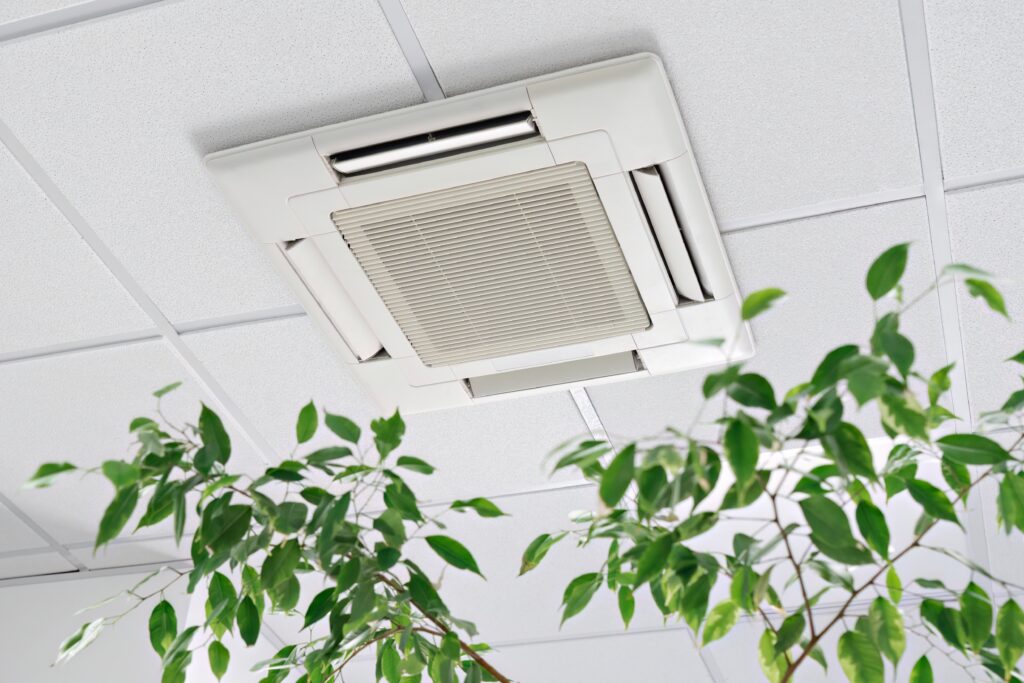 Your home should be a haven, but some dangers are even greater when you’re inside. According to the Environmental Protection Agency, the air in your home is, on average, seven to 10 times more polluted than the air outside. These airborne impurities can have serious impacts on your health.
Your home should be a haven, but some dangers are even greater when you’re inside. According to the Environmental Protection Agency, the air in your home is, on average, seven to 10 times more polluted than the air outside. These airborne impurities can have serious impacts on your health.
At Comfort Air—Rheem Pro, we understand how important it is to have clean air in your home. Here’s what you need to know about indoor air quality and what you can do to ensure it’s safe.
Common Indoor Air Pollutants
One of the reasons it can be difficult to tackle the problem of indoor air quality is that there are many different kinds of pollutants, and they come from many sources. Some of the contaminants you’re likely to find in a home include:
- Carbon monoxide
- Nitrogen dioxide
- Asbestos
- Biological pollutants (bacteria, viruses, animal dander, dust mites, pollen, mold)
- Formaldehyde
- Pesticides
- Radon
- Volatile organic compounds (VOC)
- Tobacco smoke
These pollutants come from many sources, such as fuel-burning combustion appliances, building materials, furnishings, cleaning products, air fresheners, excess moisture, and central heating and cooling systems. Pollutants can stay in the air long and accumulate to dangerous levels. Energy-efficient homes can make the problem worse because they have less ventilation.
The Health Effects of Poor Indoor Air Quality
When you first encounter these contaminants in the air, you may feel some mild symptoms, such as throat, nose, or eyes irritation. You may be fatigued, have a headache, or feel dizzy. Over time, that irritation can lead to respiratory problems like asthma. Repeated exposure can lead to allergies, especially if you live with high mold, dust, or pet dander levels.
These problems do not improve with time. People who live with high levels of indoor air contaminants are at higher risk for serious health problems, including cancer and heart disease.
Solutions for Better Indoor Air Quality
At Rheem Pro, our HVAC contractors are experts in indoor air quality. Here’s how they can help you breathe easier at home.
- Indoor Air Quality Testing: Before you can start remedying the problem, you have to know what you’re dealing with. Our experts can help identify contaminants and their levels.
- Air Duct Cleaning: We will ensure nothing is hiding in the ductwork of your heating and cooling system.
- Mold Remediation: If you are dealing with mold, it is important to work with a qualified expert. This can be a difficult problem to fix, but we know how to remediate areas with mold effectively.
- HVAC System Inspection and Maintenance: Prevent problems before they start by ensuring this important equipment works correctly.
- Allergen and Dust Mite Control: A comprehensive strategy will help reduce allergens so sufferers can relax at home.
Tips for Maintaining Good Indoor Air Quality
It’s important to take a multi-pronged approach to keep your air clean and safe. Air purification systems filter contaminants out of the air and are a great place to start. You should also consider the humidity levels in your home. Depending on how humid the air is where you live, you may want to consider equipment to add or remove moisture from the air. Humidity that is too high can encourage mold growth, while arid air leaves your nose, throat, and lungs more susceptible to irritation.
If pollen or wildfire smoke are at high levels outside, keep windows and doors closed and run your air conditioner. This will help filter the air. Be sure to keep an eye on sources of moisture that could cause problems, such as leaky pipes or condensation under your air conditioner.
Well-maintained HVAC equipment is an important tool in this fight. Keeping air filters, air conditioners, furnaces, and ductwork in good condition will help you protect your indoor air quality.
Every step you can take to ensure your home’s air is clean and safe is worth the effort. Clean air protects your health and makes your home a more comfortable place to live.
Expert Indoor Air Quality Services by Comfort Air – Rheem Pro
If you’re concerned about the quality of the air in your home, Comfort Air—Rheem Pro has you covered. We only work with experienced and skilled contractors, and we are confident they can help you. To find an expert to help you improve your indoor air quality, take a look at our contractors. You deserve to relax at home, knowing you’re protecting your family with every breath.


